The Hesse-based start-up doks. innovation aims to future-proof corporate goods logistics with the help of drones . The coronavirus crisis hit the new company as it was preparing for its market launch. A KfW loan will now enable the final test phase to be completed for this ambitious technology.
Video: How doks.innovation simplifies warehouse logistics with the help of drones (KfW Group/n-tv). This video is only available in German.
The Technologie- und Gründerzentrum technology and innovation centre in Kassel-Wilhelmshöhe is virtually deserted, save for a loud buzzing sound coming from the high-ceilinged rooms of the logistics service provider, doks. innovation. Here a drone is flying through the long corridor. A cable connects it to a floor-mounted robot that slowly moves forward. Its batteries keep the drone in the air for up to five hours. During this test run, it scans barcodes that are attached to the wall, thus imitating a warehouse packed full of goods. The data are transferred to software developed in-house, which in turn prepares the data for goods management systems.
This technology is particularly exciting for logistics companies. The sector needs to embrace the digital world in order to maintain its competitiveness. This is already happening in many places, but it is still a manual process to conduct inventories in vast outdoor facilities or halls that are often enormous. This is where doks.innovation comes into play, with the start-up enabling inventory data to be captured using standard drones enhanced with additional technology. “Our systems are fully developed now, three years after our company was founded”, explains co-founder and CEO, Benjamin Federmann.
Key findings for use in practical situations are now being collated in around 40 pilot projects. One of the partners involved is the logistics service provider, Rhenus. Theresia Teigelkamp, who is responsible for innovation management there, provides an insight into the benefits: “It is really important to be able to monitor inventories on an ongoing basis and compare them with the inventory data stored in the system. To do this, employees move amongst the pallets in the warehouses using aerial lifts and scan the codes. They cannot have a fear of heights, and the work is time-consuming. An inventory drone is a genuine alternative and allows staff to be deployed on other more challenging tasks.” In the long term, automation may help reduce costs by up to 70 per cent and save time by up to 90 per cent. In addition, this technical solution offers a high level of reliability and can also be used autonomously during break times or at night. Customers lease the drone and robot-based system and can operate it themselves once they have been trained.
Read more under the image gallery.
Three years ago, the founders Martin Lang, Quang Hien Mike Becker and Benjamin Federmann (left to right) started developing a new technology for logistics companies. Now the systems they developed will soon be ready to enter the market.
Emergency solutions during the pandemic
Together with his team of 20 highly skilled employees, Benjamin Federmann is fine-tuning the technology that has the potential to transform an entire sector. “We need additional funds to prepare for our market launch”, he explains. “We were just about to embark on another round of financing discussions with investors. Then of course, coronavirus hit at a particularly inopportune moment.” The investors pulled out. It was no longer possible to conduct practical tests or give presentations to other potential customers as the warehouses were closed to external individuals.
In terms of how close the virus came to impacting the company itself, this was evident when an employee came forward with concerns. He had been in contact with some people returning from a skiing holiday who had been infected with coronavirus. The testing capacities back then were scarce, not all of the people in the vicinity had been tested, and so he put himself into voluntary quarantine. As a precaution, Benjamin Federmann instructed the entire team to work from home. Virtually everything is done digitally from home, with meetings now able to be held via video chat. However, it is impossible to recreate the test environment for the final pre-series production phase in everyone's living rooms. The simulations are now being conducted at the company's head office. An emergency calendar is used to control attendance on site so that as few people as possible meet up with each other. Wearing a mask is obligatory during work.
A few ongoing projects generate regular revenue, and the state emergency aid amounting to 30,000 euros provided support. However, these funds are nowhere near enough to be able to undertake further development measures at the required speed and cover operating costs. There is a lack of new funds that would normally be raised via venture capital. Federmann, who describes his way of working and thinking as that of a mid-sized company, never considered reducing wage costs by implementing Kurzarbeit, or short-time working. He kept a close eye on the news items regarding the emergency aid programmes offered by the German Federal Government, and made an appointment to meet with his bank.
Capital in times of crisis
Matthias Seim, from Volksbank Kassel Göttingen, has accompanied "doks.innovation" since it was founded. “Mr Federmann is very proactive and came to us at an early stage”, he explains. “After conducting a financial review, we were quickly able to work out the financing requirements and recommend the ERP-Gründerkredit – Universell loan (ERP Start-Up Loan – Universal). This loan is best suited to taking into account the concerns and specific circumstances of a young company. As the costumer’s regular bank, we not only know the company figures but also the personality of the entrepreneur in question, something that is essential to the evaluation process. KfW relies on our vote of confidence. Otherwise, it would not have been possible to help so quickly.”
In this case, KfW was already familiar with the start-up. Back in 2019, "doks.innovation" was the State of Hesse winner of the KfW Entrepreneurs' Award.
The current need for further development and market launch support is up to 1.5 million euros. This amount was approved immediately. The loan term is ten years, with no repayments for the first two years. The favourable interest rate of 1.03 per cent also means a predictable and secure future for doks.innovation too. The entrepreneur is currently in discussion with the group of investors as to what amount will be requested and when. Six months will be enough time for this, provided the funds are kept interest-free. Benjamin Federmann is relieved that his company remains well positioned despite the pandemic. Now he can once again focus on his target, which is as clear as it is revolutionary: namely the desire for doks. innovation to advance goods logistics throughout Europe in the next two years.
Just four months after the lockdown, the situation at doks.innovation has eased considerably. In the meantime, the employees have returned from their home office. Security precautions remain a matter of course. CEO Federmann looks back: "The loan has left us room for important growth during the severe economic restrictions. It has enabled us to expand our team, bring forward development milestones and lay the foundation for the successful continuation of two research projects."
Published on KfW Stories on 9 June 2020, last updated 6 July 2023.

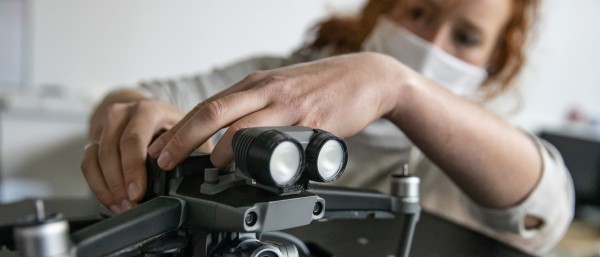
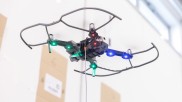
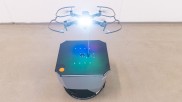


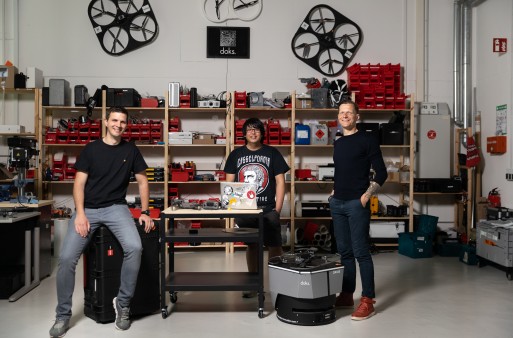
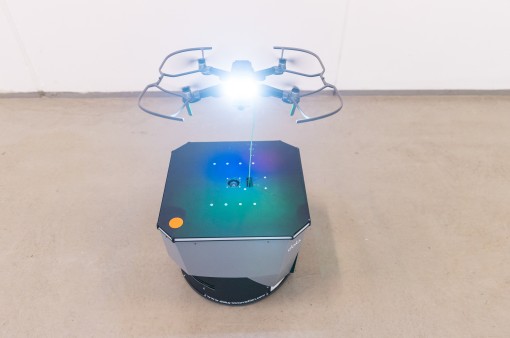
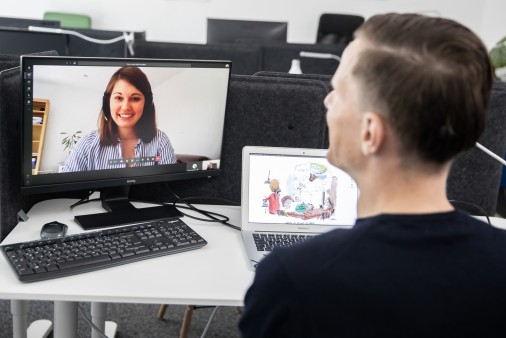
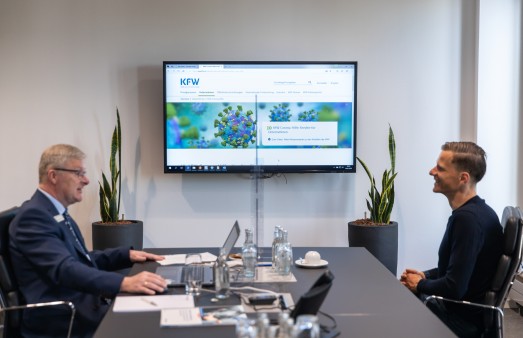
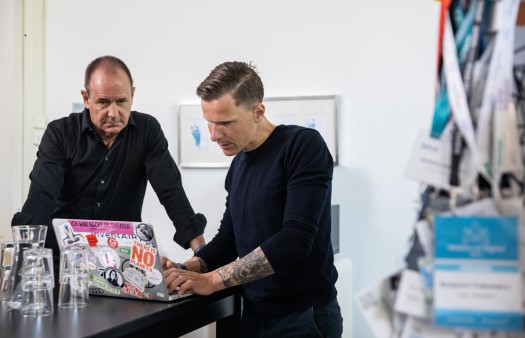
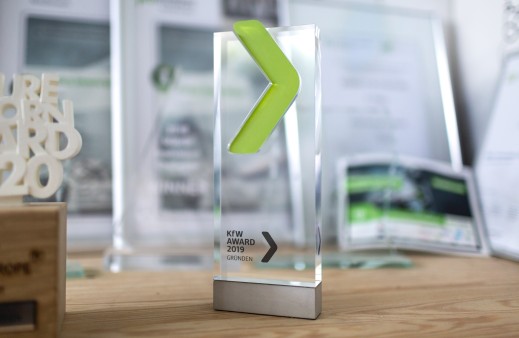






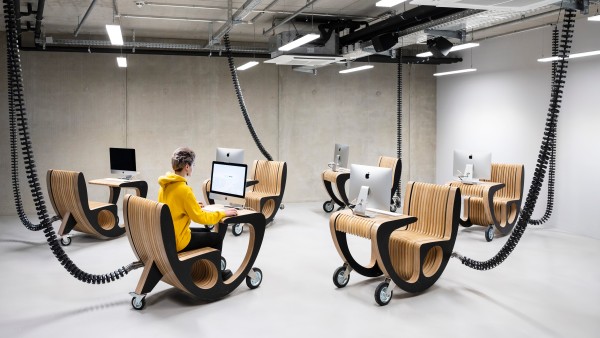


Data protection principles
If you click on one of the following icons, your data will be sent to the corresponding social network.
Privacy information